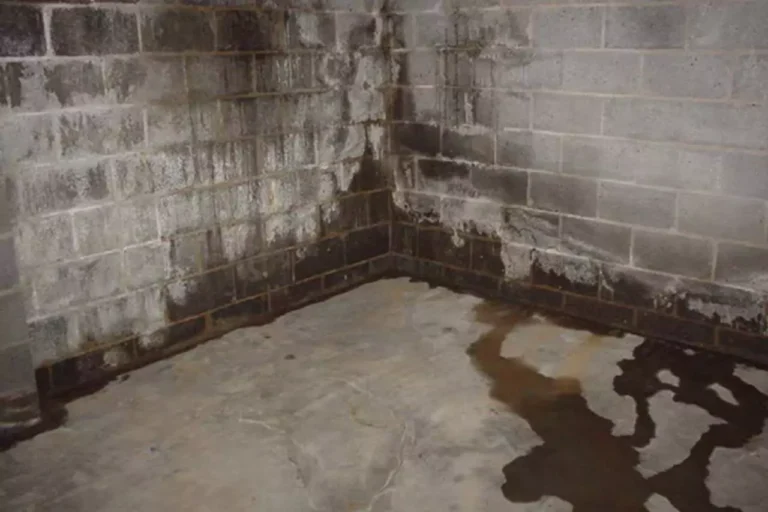Prevent Basement Mold Growth
Apr 24, 2024
Prevent Basement Mold Growth
Are you tired of dealing with pesky basement mold growth? It’s not only unsightly but can also pose health risks to you and your family. In this blog post, we’ll discuss the common causes of basement mold and provide practical tips on how to prevent it from taking over your space. Say goodbye to damp, musty odors and hello to a clean, healthy basement! Let’s dive in and tackle that mold once and for all.
Prevent Basement Mold Growth
Basements are notorious for mold growth, but fear not – there are ways to prevent it from flourishing in your space. By addressing common culprits like flood damage, unvented dryers, and condensation buildup, you can nip mold growth in the bud. Properly installed gutter downspouts, well-ventilated bathrooms, and good drainage systems also play a crucial role in keeping mold at bay. Stay proactive and implement these preventive measures to ensure a mold-free basement environment for you and your loved ones.
Common Causes of Basement Mold
Basement mold can be a nightmare for homeowners, but understanding the common causes can help in prevention. Flood damage is a primary culprit, as excess moisture seeping into the basement provides the perfect breeding ground for mold spores. Another sneaky cause is an unvented dryer – all that hot air and humidity released during drying ends up trapped in the basement, promoting mold growth.
Condensation buildup on walls or windows due to poor ventilation creates damp conditions ideal for mold to thrive. Improperly installed gutter downspouts can lead to water seepage around the foundation, further exacerbating moisture issues in your basement.
Flood Damage
Basement mold growth can often be traced back to flood damage. When water seeps into your basement, whether due to heavy rains or a burst pipe, it creates the perfect breeding ground for mold spores. The excess moisture left behind after a flood provides ample opportunity for mold to thrive and spread throughout the space.
If your basement has experienced flooding in the past, it’s essential to thoroughly dry out the area and address any water damage promptly. Failure to do so can lead to persistent humidity levels that encourage mold growth, posing potential health risks and structural damage over time.
Unvented Dryer
Unvented dryers can contribute to basement mold growth without you even realizing it. When a dryer is not properly vented, the excess moisture from drying clothes has nowhere to escape but into your home’s air. This trapped moisture creates a prime environment for mold spores to thrive and multiply, especially in the damp basement setting.
To prevent this issue, make sure your dryer is vented outside the house through a dedicated exhaust duct. Regularly check and clean the vent to ensure optimal airflow and reduce moisture buildup inside your basement.
Condensation Buildup
Condensation buildup in your basement can be a breeding ground for mold growth. This occurs when warm, moist air comes into contact with cooler surfaces, leading to water droplets forming on walls or windows. The excess moisture created by condensation provides the perfect environment for mold spores to thrive and multiply.
To prevent condensation buildup, consider using a dehumidifier to reduce humidity levels in your basement. Additionally, improving ventilation by opening windows or installing exhaust fans can help minimize moisture accumulation. Regularly inspecting and addressing any sources of leaks or dampness will also aid in preventing condensation-related mold issues.
Improperly Installed Gutter Downspouts
Improperly installed gutter downspouts can be a hidden culprit behind basement mold growth. When these downspouts don’t direct water away from your home properly, it can lead to water pooling around the foundation. This excess moisture seeping into the basement creates an ideal environment for mold to thrive.
To prevent this issue, make sure your gutter downspouts are positioned to channel water at least 6 feet away from your home’s foundation. Regularly clean and maintain your gutters to ensure they are free of debris and functioning effectively in diverting rainwater away from the house.
Badly Ventilated Bathrooms
Having a badly ventilated bathroom can lead to more than just steamy mirrors and musty odors. The lack of proper ventilation in this space creates the perfect breeding ground for mold growth. When hot showers release moisture into the air, without adequate ventilation, that moisture lingers and settles on surfaces, promoting mold spores’ development.
To prevent basement mold growth caused by poorly ventilated bathrooms, consider installing exhaust fans or opening windows during and after showering to allow excess moisture to escape. Proper airflow is key to keeping your bathroom dry and mold-free.
Poor Ventilation
Poor ventilation in your basement can contribute to mold growth. When the air circulation is inadequate, moisture tends to linger and create a breeding ground for mold spores. This issue is often seen in basements with limited windows or vents, trapping humid air inside.
To combat poor ventilation, consider installing exhaust fans or dehumidifiers to keep the air moving and prevent excess moisture buildup. Additionally, opening windows periodically can help improve airflow and reduce the risk of mold taking hold in your basement space.
Damaged Plumbing Lines and Water Leaks
One of the main culprits behind basement mold growth is damaged plumbing lines and water leaks. When pipes are compromised, even minor drips can create a damp environment perfect for mold to thrive in. Leaks hidden behind walls or under floors can go unnoticed for extended periods, leading to extensive mold infestations that are difficult and costly to eliminate.
Regularly inspecting your plumbing system for any signs of leaks, such as musty odors or visible water stains, is crucial in preventing mold growth in your basement. Promptly addressing any leaks or damage can help keep your home free from this harmful fungus.
Poor Drainage Systems
Poor drainage systems can be a major factor contributing to basement mold growth. When water is not properly directed away from the foundation of your home, it can seep into the basement and create a damp environment perfect for mold to thrive.
Clogged or improperly installed gutters, downspouts that are too short, or grading issues around the perimeter of your home can all lead to water pooling near the foundation instead of being carried away. Addressing these drainage issues is crucial in preventing mold from taking hold in your basement.
Other Factors Creating a Humid Environment
Other than the common causes of basement mold, there are various other factors that can contribute to creating a humid environment. Leaks in your roof or walls can allow moisture to seep into your basement, promoting mold growth. Poor insulation and sealing around windows and doors can also lead to excess humidity levels indoors.
Additionally, household plants, aquariums, and even cooking without proper ventilation can introduce excess moisture into the air. It’s essential to be mindful of these less obvious sources of humidity when trying to prevent basement mold growth.
Where to Check for Mold
Mold can lurk in hidden corners of your basement, so it’s crucial to know where to look. Start by inspecting areas prone to moisture, like around pipes and water heaters. Check dark and damp spots such as behind stored items or along walls.
Don’t forget to examine ceiling tiles, carpeting, and insulation for any signs of mold growth. Be thorough in your search – even small patches of mold can indicate a larger issue that needs attention.
How to Prevent Basement Mold
To prevent basement mold growth, it is essential to take proactive steps in maintaining a dry and well-ventilated environment. Regularly inspecting the basement for any signs of water leaks, fixing drainage issues promptly, ensuring proper ventilation, and controlling humidity levels are key preventive measures. By addressing common causes such as flood damage, condensation buildup, poorly ventilated spaces, and other contributing factors that create a humid environment, you can significantly reduce the risk of mold growth in your basement. Remember that prevention is always better than remediation when it comes to dealing with mold issues. Keep your basement dry and well-maintained to protect your home from the harmful effects of mold.

